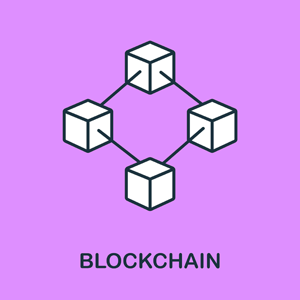 Blockchain technology, a revolutionary innovation that emerged alongside the advent of cryptocurrencies, has transcended its initial applications and is now reshaping industries across the globe. In this in-depth article, we will delve into the intricacies of blockchain, exploring what it is, why it holds paramount importance, its far-reaching effects, and the critical aspect of blockchain security. Additionally, we will highlight some highly rated tools designed to enhance the security of blockchain systems.
Blockchain technology, a revolutionary innovation that emerged alongside the advent of cryptocurrencies, has transcended its initial applications and is now reshaping industries across the globe. In this in-depth article, we will delve into the intricacies of blockchain, exploring what it is, why it holds paramount importance, its far-reaching effects, and the critical aspect of blockchain security. Additionally, we will highlight some highly rated tools designed to enhance the security of blockchain systems.
Understanding Blockchain Technology
At its core, blockchain is a decentralized and distributed ledger technology that enables the secure and transparent recording of transactions across a network of computers. Instead of relying on a central authority, blockchain utilizes a consensus mechanism, often in the form of a consensus algorithm, to validate and record transactions.
Importance of Blockchain
Decentralization:
One of the key features that make blockchain technology significant is its decentralization. Traditional systems often rely on a central authority, such as a bank or government, to validate and record transactions. In contrast, blockchain operates on a peer-to-peer network, eliminating the need for intermediaries and fostering a trustless environment.
Transparency and Immutability:
Blockchain’s transparent and immutable nature ensures that once a transaction is recorded, it cannot be altered or tampered with. Each block in the chain contains a hash of the previous block, creating a chronological and unchangeable sequence of transactions.
Security and Trust:
Blockchain employs advanced cryptographic techniques to secure transactions. The decentralized nature of the network makes it resistant to hacking attempts, enhancing the overall security and trustworthiness of the system.
Who Does Blockchain Affect?
Financial Sector:
Blockchain has disrupted the financial industry by introducing cryptocurrencies like Bitcoin and Ethereum. It offers faster and more cost-effective cross-border transactions, reducing the reliance on traditional banking systems.
Supply Chain Management:
Blockchain’s transparency and traceability make it invaluable in supply chain management. From tracking the origin of products to ensuring authenticity, blockchain enhances visibility and reduces fraud in the supply chain.
Healthcare:
In healthcare, blockchain ensures the secure storage and sharing of patient data. This not only improves data interoperability but also enhances patient privacy and reduces the risk of data breaches.
Blockchain Security
While blockchain is renowned for its security features, it is not immune to potential threats. Common security concerns include 51% attacks, double-spending, and vulnerabilities in smart contracts. To address these issues, the blockchain community has developed a range of security tools.
Highly Rated Tools for Blockchain Security
Hyperledger Fabric:
Hyperledger Fabric is an open-source enterprise-grade blockchain platform. It provides a modular and scalable architecture, making it suitable for a wide range of applications. Security features include permissioned networks, identity management, and confidentiality.
Chainlink:
Chainlink is a decentralized oracle network that connects smart contracts with real-world data. It enhances the security of blockchain applications by ensuring that external data is reliable and tamper-proof.
Ledger Nano S:
Ledger Nano S is a hardware wallet designed to secure cryptocurrency assets. It stores private keys offline, protecting them from online threats. This physical device adds an extra layer of security for users holding digital assets.
Conclusion
Blockchain technology stands as a transformative force with the potential to redefine various industries. Its decentralized nature, transparency, and security features make it a cornerstone for the future of digital transactions. As the technology continues to evolve, so too will the tools and strategies employed to ensure the robust security of blockchain systems, paving the way for a more secure and trustworthy digital future.
